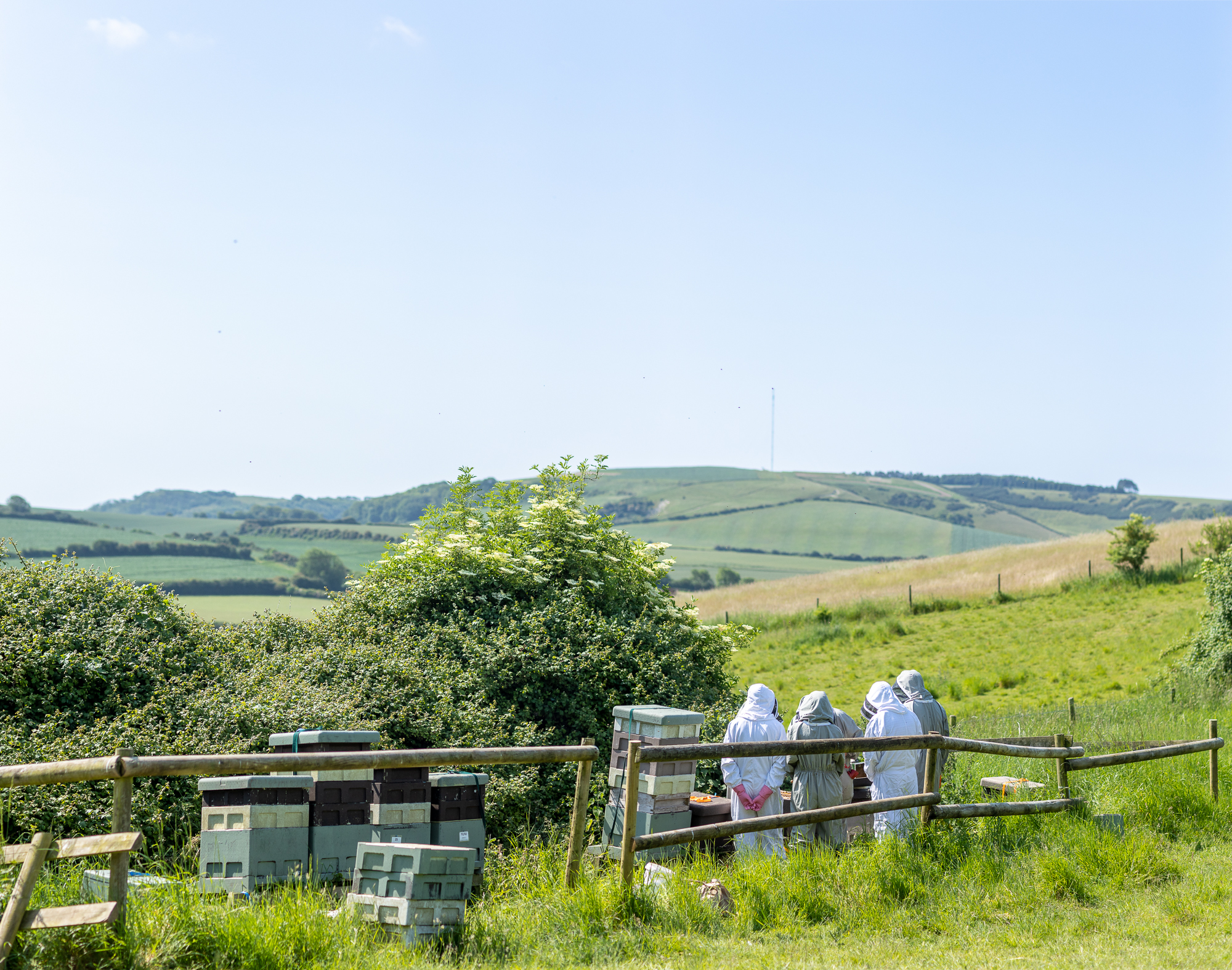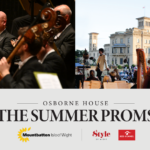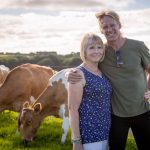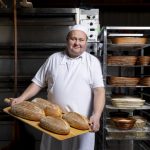This article first appeared in the July/August 2023 issue of Style of Wight magazine. Words by James Rayner. Photography by Julian Winslow.
It’s 09:30 on a Tuesday morning and the Style of Wight team (minus one or two unavoidable absences) are outside Carisbrooke Castle looking for a man in a bee suit – and for good reason too. We’re here to meet Chris, a skilled beekeeper (and former karate instructor) who’ll be taking us to spend a few hours with a set of his honey-soaked hives.
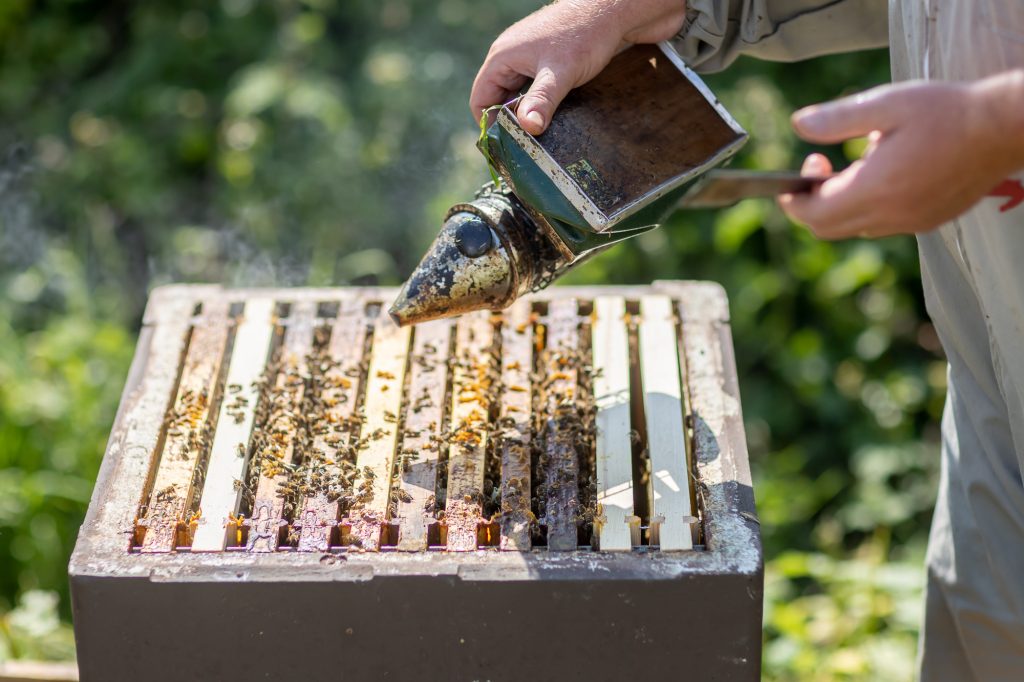
Chris is the founder of Bunbury Bees, a local raw honey producer, with 108 hives scattered right across the Island – so we should be in safe hands. Introductions made we set off in convoy to one of Chris’ most scenic sites, rolling past the ancient stone walls of Carisbrooke Castle, which, as we’re soon told, are home to thousands of wild bees who live in the cracks and crevices, occasionally swarming out to find a new home nearby.
After a few minutes on the road, we reach our destination just off Bowcombe Road, a gently undulating meadow fringed with elderflower and home to an elderly-looking brown sheep. Here we don our bee suits, slip on some gloves and gather round as Chris explains how he first got into beekeeping.
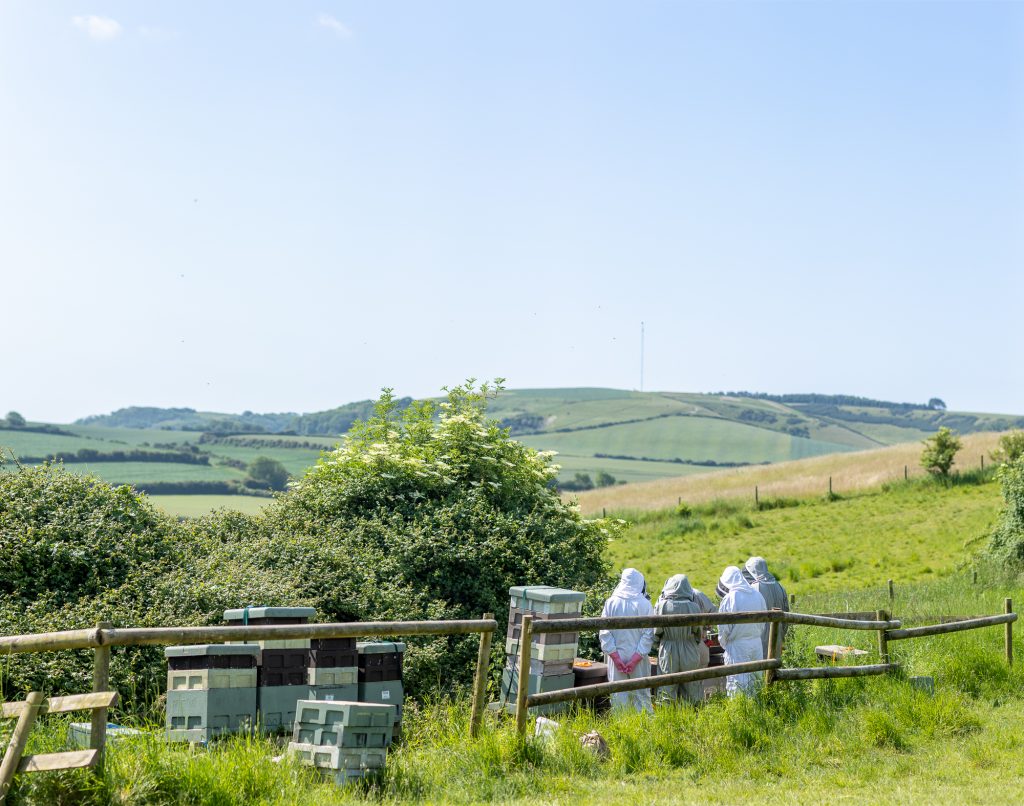
“I’ve always been interested in insects and applied to study entomology at university in 1996 but the course was cancelled as only one other person in the whole country applied! I ended up studying environmental science instead but then my career went off in a bit of a strange direction as I found myself working in IT for a local council, which wasn’t ideal for someone with ADHD. My first experience with bees was actually through my mum though. She was a teacher and when she retired she wanted to keep busy so started keeping bees. She soon learnt you need a strong back to lift the hives, so I was quickly roped in and given my own suit too. I moved back to the Island in 2005 and by 2008 I was beekeeping”.
Within a few years, Chris had met his future wife Kate, who, whilst initially coming to take photos of Chris’ bees, soon became just as absorbed as he was. Together they built up the business, Kate avidly reading all there was to know about apiaries and apiculture (the art of raising honey bees), whilst Chris expanded their locations from a back garden in St. Helens, to this tranquil spot in Carisbrooke, and other sites in Chale, Bembridge and Porchfield.
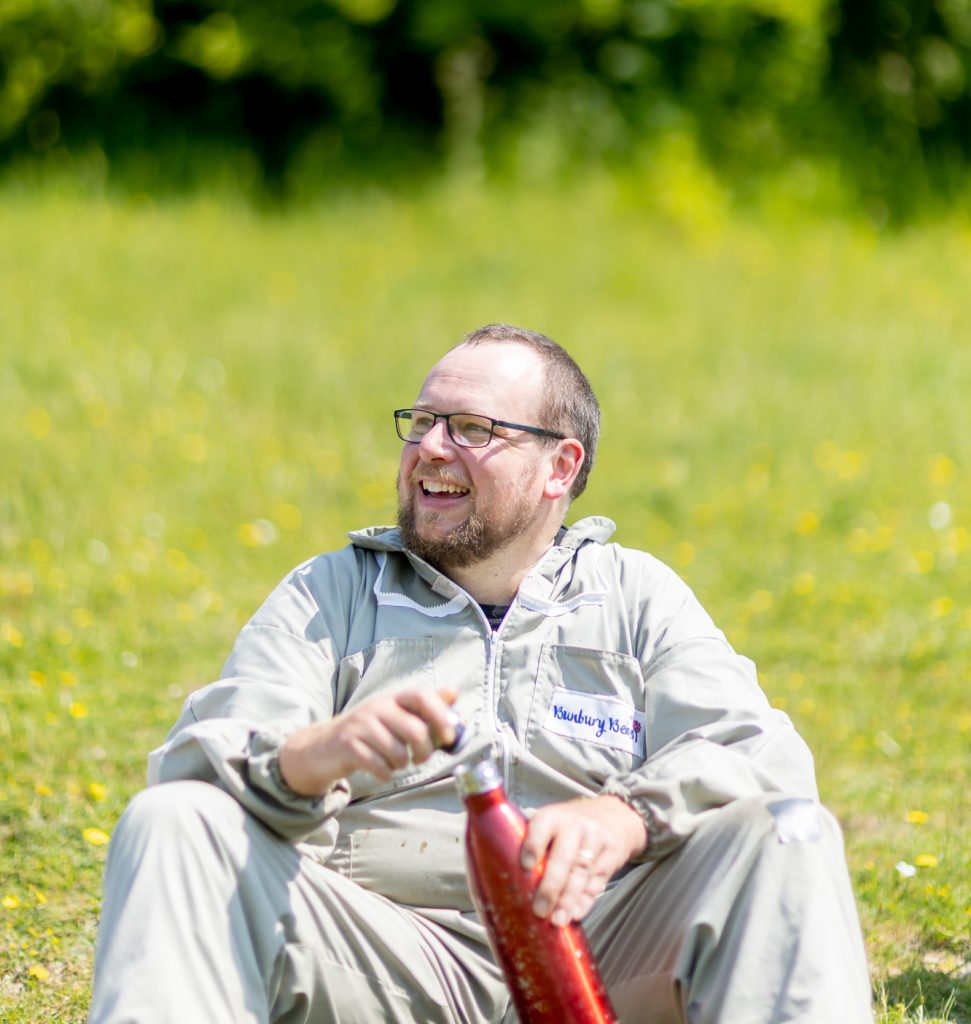
They named their brand Bunbury Bees, after the made-up fictional invalid Bunbury in Oscar Wilde’s The Importance of Being Earnest. “We couldn’t use our surnames, as mine is Afrikaans and people find it very difficult to pronounce. Kate’s surname was Italian and also a bit tricky. I liked The Importance of Being Earnest, so we chose the name Bunbury as it sounded vaguely Anglo-Saxon and was quite satisfying to say. I thought it was a completely made-up name until our first County Show when the Bunbury family of Bembridge came over to see if we were long-lost relatives!”
Sadly Kate became seriously ill and passed away, however her spirit is still very much a part of the business and Chris continues to go from strength to strength, increasing harvests from one and a half tonnes of honey last year with the help of Kate, to hopefully collecting four tonnes this year (if the weather stays this good). “The bees certainly helped me grieve, they provided a distraction and I always feel calm around them”.
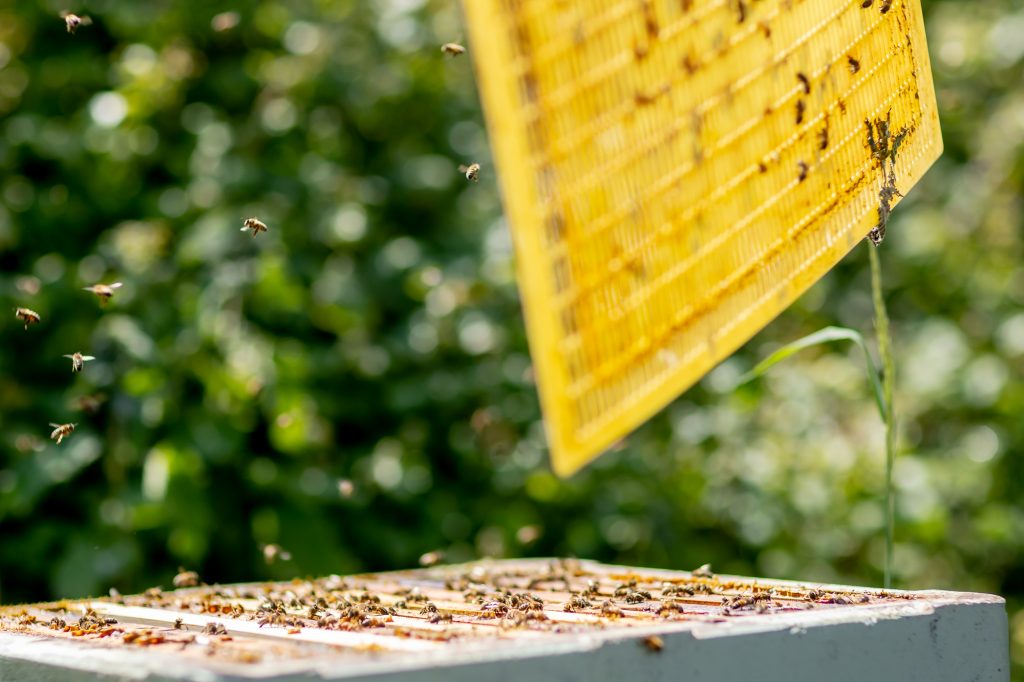
As we shuffle closer to the row of hives, Chris prepares to open them, one at a time, starting with the most placid and ending with the most irritable. It seems some hives are angrier than others, something dictated mainly by genetics. Luckily for us, most of Chris’ bees are Buckfast bees, a species first developed by a German-born Benedictine monk at Devon’s Buckfast Abbey, renowned for their calm temperament.
Chris begins by lighting his smoker, an essential piece of bee-keeping equipment, used to puff smoke over the bees to calm them down, masking any attack pheromone that may have sprayed as we disturb them. Each beekeeper supposedly has their own recipe for their smoker and in Chris’ case, it’s crinkly cardboard packing materials which he finds to work particularly well.
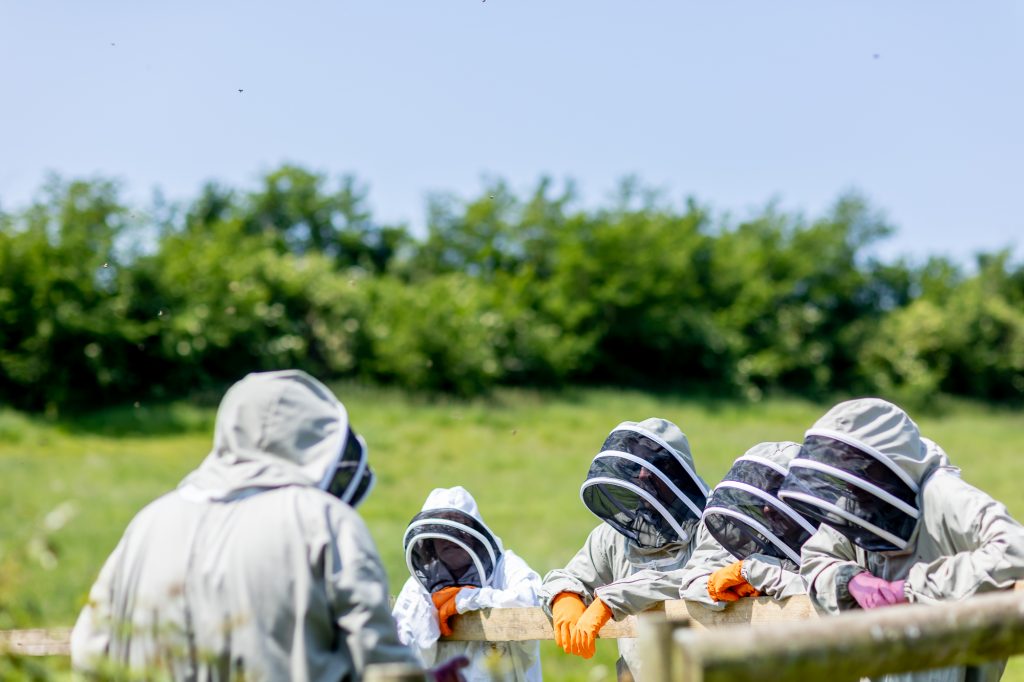
With the lid of the hive removed, and frames examined, we’re soon learning about drones, workers, honey spinners and queen excluders, as well as some very surprising facts. For example: “When bees feed on a plant, they leave behind a pheromone which tells other bees that flower has already been visited. This is why you see bees hover over a number of flowers before choosing which to land on. Amazingly, that pheromone wears off at almost exactly the same rate as the nectar on that flower is restored”.
Moving on to hive number two, Chris begins to examine the pollen and colour of the honey to see what the bees have been feeding on. At this site in Carisbrooke, the bees feed mainly on hedgerows in spring and meadow flowers in summer, including St. John’s Wort which adds a very floral flavour. “The bees go wild for brambles too” Chris explains, “which always bulk out the flavour of their honey. They also like horse chestnut flowers and last year during the heatwave they fed a lot off fleabane which you can tell from the fluorescent orange pollen they bring back with them.”
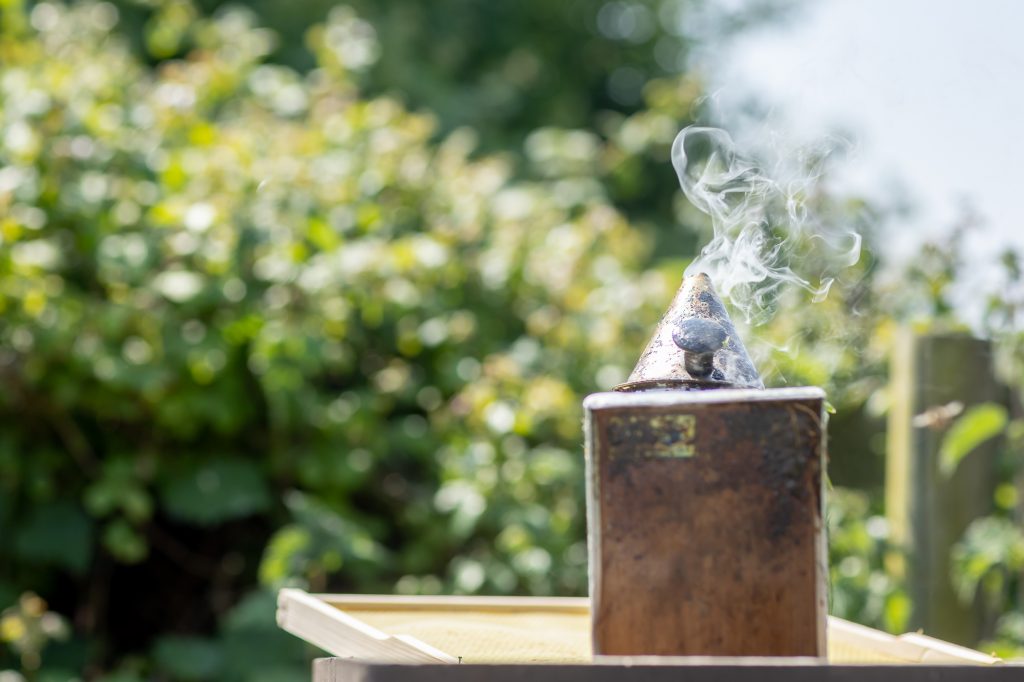
Once the harvesting process is complete, Bunbury Bees offer single-origin honeys, each collected from just one site, offering a unique taste of their different locations – whether that’s Ryde or Wroxall. Each honey will have a distinct flavour, made up from the unique mix of flowers that the bees in the hive have visited, although that flavour will change year on year due to the way weather conditions affect each plant. “Bembridge has lots of lime trees (as in linden, not the citrus fruits) which adds a smooth, refreshing flavour which makes my mouth water just thinking about it. One honey near Cowes suddenly had a strange flavour and it turned out a neighbour had been growing marmalade oranges that the bees seemed quite keen on”.
After the third hive has been opened, and the cloud of buzzing bees around us slowly becomes more and more dense, we wrap things up and call it a day. De-suiting, we thank Chris for a wonderful (and very interesting) morning, before hurrying home to sample his jars of liquid gold.
To find out more about Bunbury Bees, to buy Chris’ locally produced honey or to sign up for your own bee-keeping experience, visit the Bunbury Bees website.
bunburybees.co.uk
